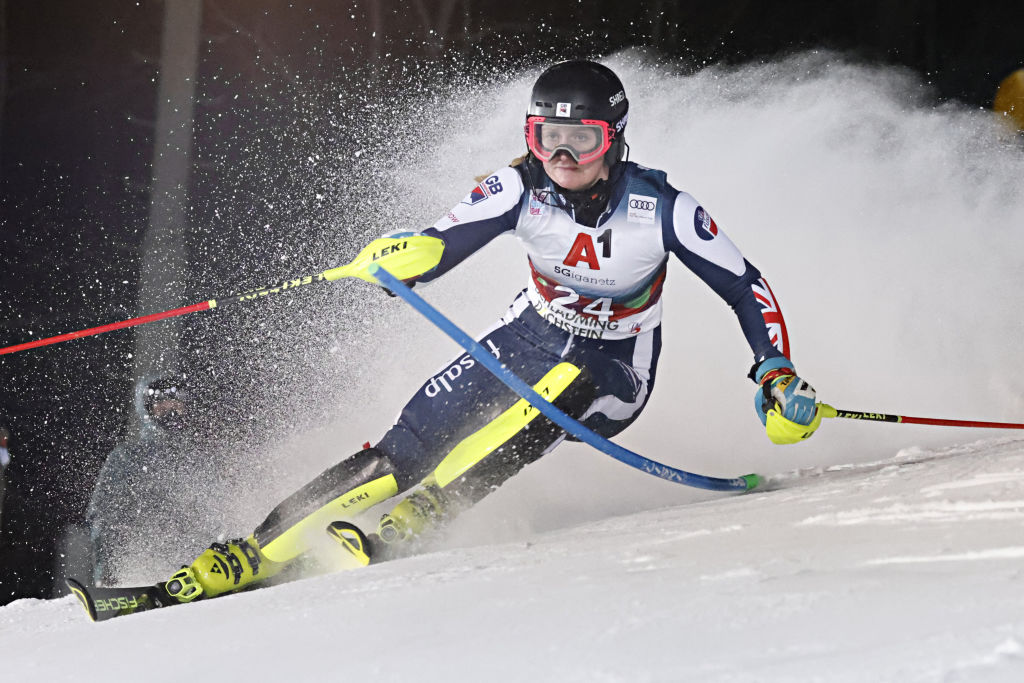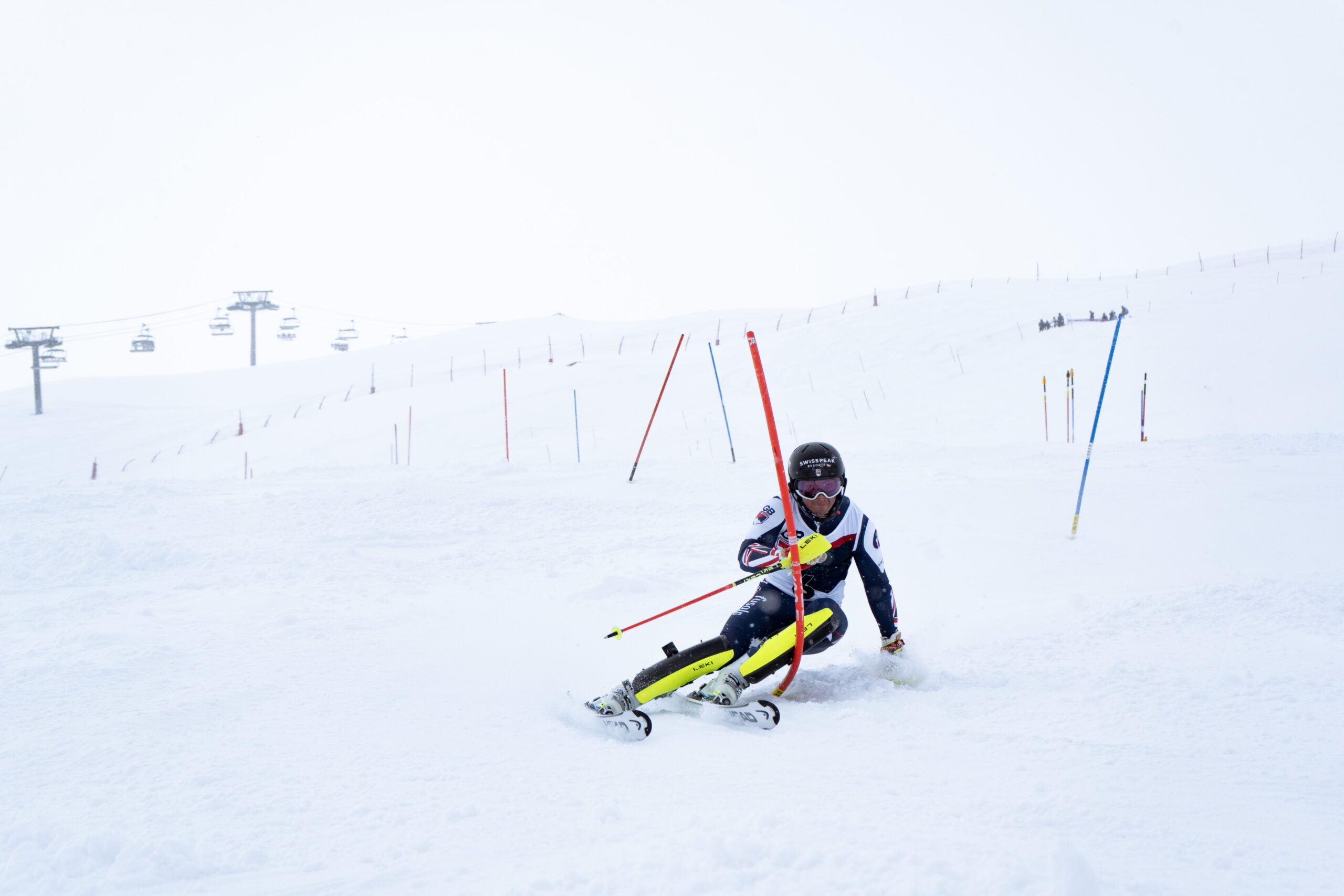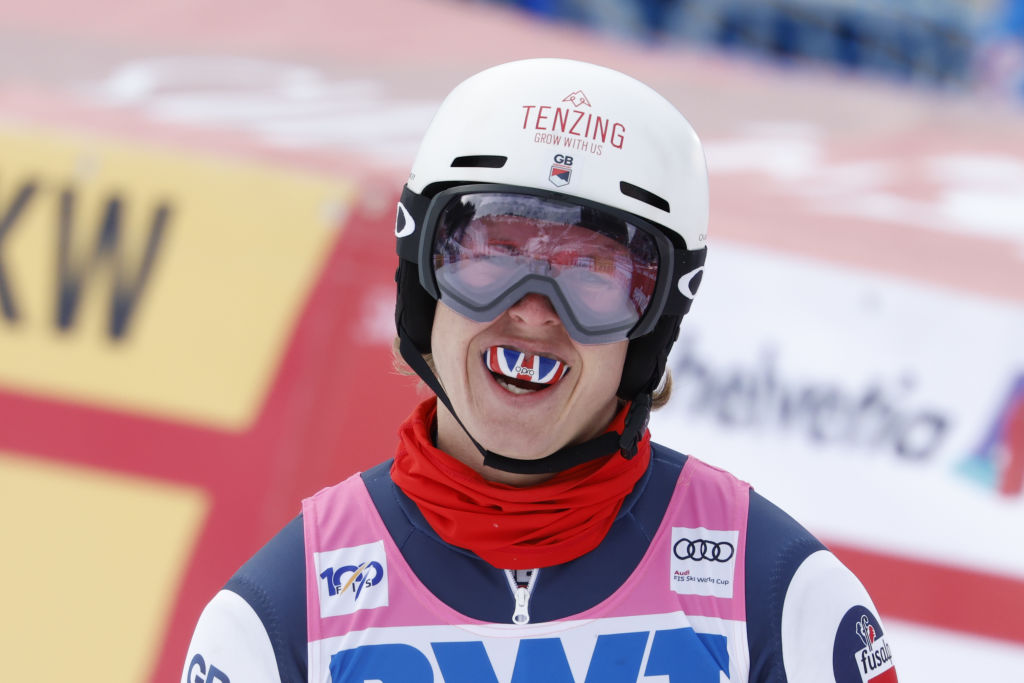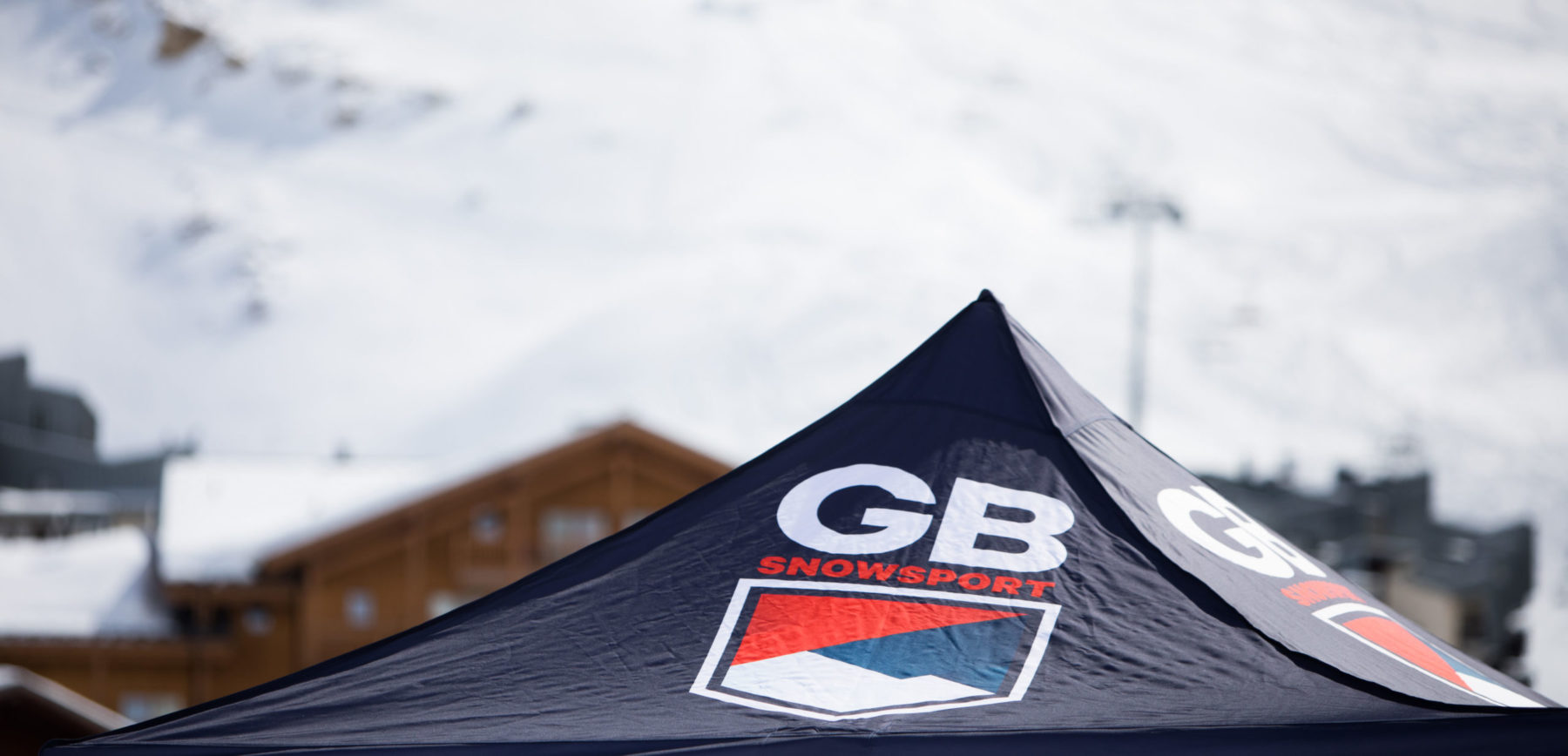
In the wake of Charlie Guest’s retirement from competitive skiing, we catch up with the Alpine World Cup star and two-time Olympian to hear her story first-hand
“I love skiing. I still love skiing. I feel really grateful I can walk away from the sport still in love with it, still an accidental athlete who go this far because I loved it.”
There can’t be many “accidental athletes” who can tick off two Olympic Winter Games (including a part in British Alpine skiing history as a member of the Team Parallel squad that took fifth place at the PyeongChang Games), a succession of Europa Cup podiums, and a flurry of Slalom World Cup top-30s. But then, there aren’t many athletes like Charlie Guest.
We’re talking two days on from Guest’s last race as a professional Alpine skier, and three days after the 30-year-old confirmed her retirement ahead of the 2024 Europa Cup Finals, in a day which she calls “one of the best days of my career”.
But first, there’s something she needs to explain.
“I think one of the things nobody really says is, to get to do this, there’s way more rubbish days than great days.”
It’s a simple line, said almost as a throwaway remark in a much longer discussion about life as an Alpine World Cup athlete, but it’s typical of this particular discussion because it highlights one of Guest’s many extraordinary talents: the ability to neatly shine a light on the side of athlete life that we rarely get to see.
“The best way I can describe it,” she says, “is that there are years, whole chunks of time, that I look back on and I don’t even know how I did it.”
“I was a kid that grew up skiing on Cairngorm Mountain. I’m an accidental athlete, I wasn’t born to this do this, and there were so many things I thought I’d never achieve – starting a World Cup, getting a podium at a Europa Cup, winning a Europa Cup race, making World Cup points – but somewhere there was something in me there was an underlying confidence that was telling me ‘go for it, go for it, go for it’.”
And that underlying confidence was critical, because to hear Guest’s story is to realise the extent of accomplishments achieved in the face of enormously difficult circumstances. The back injury in 2014, for example, that saw her break four vertebrae.
“That was the longest lasting injury ever; I struggled with back injuries for five years after that, and there’d be days I’d get up and I just couldn’t even walk,” she explains. “I spent the first half of my twenties in a lot of discomfort, emotionally and physically, striving for the goal of an Olympic medal or a World Cup medal. However, I am so proud of what I have gone onto achieve – things that had never been done before in British Alpine, but it will always hurt me that I’m sitting here today, knowing that I’ve not achieved a World Cup podium, but I know I gave 100% of myself for that goal, and I know I sacrificed everything I possibly could have done for those goals, and boy no one can ever take that away from me.”
So bad were the impacts of that injury that weeks out from her first foray at the Olympic Winter Games, she was relying on teammate Alex Tilley to put her socks on for her, because there was no way she could do it for herself. And nor was it the only struggle she faced.
“I was always very aware of the burdens, including the financial burden, the sport can bring. Even from about the age of 12, I was very conscious that for my parents things like buying skis were expensive. And then, as I got further in my career, there were times I’d really doubt myself, thinking I wasn’t good enough, or I didn’t have the pedigree, or I didn’t have the background. But every time, the race or training times could speak for themselves and seeing improvement day after day gave me motivation and helped me to find a way around those challenges.”
And in the end, the picture of her career, seen in retrospect, is one of almost overwhelming success.
11 World Cup individual top-30 finishes including five top-20s and a high watermark of 13th achieved in Schladming in January 2022, the culmination of a week of Slalom World Cup races that saw Guest’s personal best re-set three times in a row. The first British woman to ever win an Alpine Europa Cup race, a feat she ended up achieving three times, in Folgaria in March 2019, in Hasliberg in January 2020, and in Reiteralm in March 2021. An eight-time Europa Cup podium holder, with two of those coming in her final season on snow. So how did the “accidental athlete” come to be such a competitive force on snow?
“I had the grit, I had the determination and a serious work ethic. But what stands out to me, looking back is that if we look at the whole of my story, the 2019-2022 period was incredibly successful. I feel I’m just testament to what an athlete can do when they have support and have the right people around them,” she says. “I went from never having won a Europa Cup to winning three, from never having made a World Cup top-30 to coming 13th thanks to the complete background support I had at that time.
“When I started out, and I think this is true for myself, Alex [Tilley], Billy [Major], Laurie [Taylor], Charlie [Raposo], and anyone younger, a lot of us came into our senior careers with no support whatsoever, we’ve kind of had to figure a lot of it out ourselves. I’m so proud of our generation for being able to look at it [The Alpine Skiing World Cup] and say ‘we’re going to do this’, and we have put down that marker that shows ‘yeah, we did it’.”
Guest’s decision to retire came in steps, but crystallised for her when she reached a point that she says made her “sort of realise that the reasons to keep going just weren’t stacking up anymore.”
What does she mean by that?
“Somewhere, the fight just sort of ran out for me. I needed some uplift, and I just couldn’t find it anywhere. And it started to get to a point where the other girls on the tour could see that too. People were coming up to me in February and saying “please, take a week off”, because they know what I’m capable of, the barriers I’ve been working with, and when those results weren’t coming anymore they could see something wasn’t right.”
In speaking with Guest, there’s almost an undertone of self-criticism, which seems at odds with the esteem in which she’s held by other British skiers, and by members of the Women’s Europa Cup and World Cup tours. She must have been aware of the genuine emotion sparked by news of her retirement, I suggest.
“Yeah, absolutely,” she agreed. “Since I told people, some of the reactions and the outpouring of love has been huge, beyond anything I’d have imagined. Even coaches I’ve only worked alongside and athletes on other teams, seeing them get emotional about it, and receiving messages from fans who’ve been there following the journey right from the start. It’s been so overwhelmingly nice, supportive, and understanding. You make such great friends on the road with the people you’re skiing with, and those are friendships that will last forever, because they truly understand what you’ve gone through.”
It’s also not the first time that Guest has experienced a wave of support in the public eye this season. Earlier in the year, she penned a widely-shared open letter to FIS, highlighting the differences in broadcast coverage for male and female athletes at the World Junior Championships.
“The letter to FIS,” she recalls, “I wrote it over dinner and just posted it because I was so angry at what had happened, and woke up the next morning thinking ‘what have I just done?’. But having the backing of Mikaela Shiffrin, Lindsey Vonn, Anna Veith, all these big names standing behind it, and that let me realise ‘okay, good, I haven’t completely burned all my bridges here!”.
You suspect that even if she had, it wouldn’t have changed Guest’s determination to fight for the right thing.
“I don’t want the next generation of girls to feel they’re any less deserving of a place in the spotlight than their male counterparts,” she explains. “We’re way past that in 2024.”
It’s a facet of her personality that perhaps paints a picture of what comes next in Guest’s already storied career.
“My values are something that have really helped me stay motivated and grounded, and really helped my performances too,” she confirms. “Those issues that matter to me, they’re so heavily ingrained in my values, and that’s absolutely where I’d like to position myself. I really want to pay my experiences forward, whether that’s being available to give Reece [Bell] or Vici [Palla] or anyone from the next generation of girls coming through some advice and guidance, or adding to the literature on women’s experiences in Alpine skiing through my academic work.”
In the short term, though, her goals are a little more personal. “I’ve got two essays due this month [Guest is in the final year of her Psychology degree], exams in May and June, and then I’m going on holiday! I’ve just been saying yes to everything I’ve been invited to. That’s something I’ve never been able to do before, and that’s been really nice.
“I spoke a lot with my psychologist about it, and I just need to look after Charlie the person a little bit more over the next 12 months, and make me the person a bit more of a priority as I start to move away rom being Charlie the athlete.
“It’s a bit terrifying, but at the same time I’m really excited about that too.”
You suspect she’s right to be excited. We all should be: after all, there’s surely only so long that someone with Guest’s values, experience, and love for the sport can stay away from continuing to make the sort of impact that’s been her career signature.
 Share
Share

